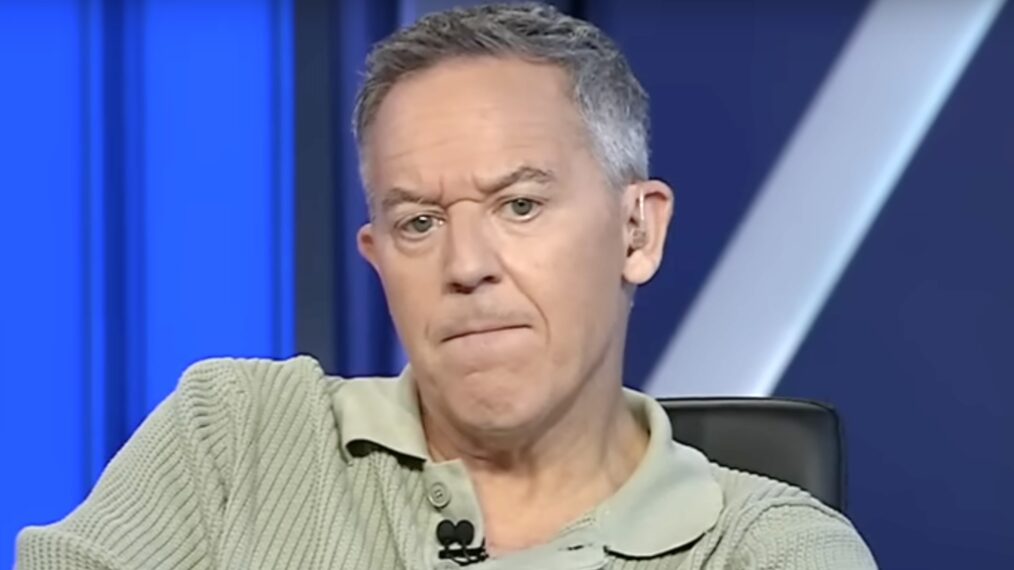In a candid and somewhat cheeky moment on The Five, host Greg Gutfeld offered his take on the looming disruption in air travel, the lingering impact of a partial government shutdown, and how it all presents “a great excuse to skip Thanksgiving.” His remark highlights both a larger cultural dialogue about modern holiday travel and a pointed commentary on the politics of disruption.

The Comment in Context
On November 7, 2025, during a segment of The Five, Gutfeld responded to reports that the Federal Aviation Administration (FAA) was enforcing flight cuts amid staffing issues tied to the government shutdown. He said:

Go, go shutdown, keep it going. What a great excuse to skip Thanksgiving. There are a lot of people that are right now going, ‘I don’t have to fly, I can’t make it.’ We know who you are because I’m one of them.”He continued by downplaying the trouble: “Flying sucks … It’s still like, what, 2 % right now.”
On its face, the comment appears humorous, self‑deprecating even—Gutfeld positioning himself as one of those opting out of the holiday travel chaos. But there are deeper threads beneath the quip.

Travel Disruption Meets Holiday Anxiety
Every year, holiday travel brings with it a mix of anticipation and stress—crowded airports, delayed flights, and packing logistics. Gutfeld’s joke taps into a growing sentiment: that maybe the holiday ritual of rushing across the country is ripe for disruption. The government shutdown, and the resultant FAA staffing issue, served as the trigger. As Gutfeld pointed out, “out of 45,000 flights a day… the day it was like 900 [cancellations].”


Gutfeld’s Tone: Light, But Not Without Intent
True to Gutfeld’s style, the remark blends humor, sarcasm, and commentary. The “great excuse” line winks at viewers: yes, you can skip the trip—and here’s a reason. In doing so, Gutfeld isn’t simply lamenting travel; he’s leaning into the idea that the ritual itself has become burdensome.
He follows up by contrasting ordinary travellers with politicians and elites, noting that “politicians … they just go on the next flight or they fly private or they fly business or first class. But it’s never been an issue.” This adds a class dimension: the holiday travel grind is for the many, not the few.

Deeper Cultural Undercurrents
Several themes intersect here:
Burnout of tradition: The idea that the annual pilgrimage back home for Thanksgiving is less about reunion and more about stress. Gutfeld frames opting out as legitimate.
Travel inequality: The observation that while many experience delays and cancellations, those with privilege don’t. Gutfeld uses this to underline his mock‑moral high ground.

Politicisation of everyday life: Gutfeld links the shutdown and the FAA cuts (a political process) to personal travel decisions. The effect: a major national event becomes a personal excuse.
Holiday as spectacle: Behind the joke lies the sense that Thanksgiving has become performative—about making the trip, gathering for the photo, rather than meaningful connection. Gutfeld’s tone suggests relief if one can opt out.

Implications: What It Means for Viewers
For many television viewers hearing this remark, there are take‑aways:
normalises skipping holiday travel when circumstances are difficult. Gutfeld’s identity as a public commentator means his “I’m one of them” line offers a kind of permission.
It encourages critical reflection about holiday rituals: Why do we feel obligated to travel every year? What do we gain—and what do we endure?
It signals a bifurcation: For those who travel, it remains an ordeal; for those who don’t, the excuse becomes socially acceptable (or even enviable).
It provides a lens through which to view the broader political environment: A government shutdown isn’t just policy—it affects the everyday, including holiday plans.

Criticisms & Counterpoints
Of course, some will object. One could argue Gutfeld’s flippant remark diminishes the significance of Thanksgiving itself: a time for family, gratitude, reflection. By framing skipping travel as a “great excuse,” he risks trivialising the holiday’s emotional dimension.
Further, not all travel issues stem from political realities; many families choose to travel or host because they value the tradition—even when it’s inconvenient. The view that disruption is a welcome “excuse” may feel dismissive to those who prize continuity.

Finally, the class dimensions he raises (elites travel easily) are real, but the commentary glosses over that many people travel for reasons beyond holiday‑pleasure: family illness, military service, economic necessity. His framing could be seen as self‑indulgent.
What We Learn: Travel, Politics, and Rituals
By zeroing in on this single remark, we get a snapshot of how commentators like Gutfeld use cultural touchpoints to reflect larger societal shifts. Travel delays become metaphors for systemic breakdowns; holiday traditions become arenas for cultural critique. Here are key take‑aways:

Modern rituals are under strain: The Thanksgiving journey, once dependable, now encounters disruptions—whether from travel infrastructure, workforce shortages, or political stalemates.
Media frames disruption as opportunity: Gutfeld turns inconvenience into liberation: “skip Thanksgiving” becomes not failure, but freedom.
Privilege underpins who suffers and who doesn’t: When commentators point to those who “just fly private,” they’re pointing to a fault line in who faces the ordeal.< 
Politics seeps into private life: A government shutdown becomes not just news, but a travel excuse, a table‑conversation topic, a life decision.
Humour masks cynicism: Gutfeld’s tone may be jokey, but it also carries a cynical undertow about whether the rituals themselves are worth the energy.

The “Great Excuse” in Closing
Ultimately, Gutfeld’s remark—“What a great excuse to skip Thanksgiving”—does more than provoke a laugh. It challenges the audience: What if the reason you don’t travel is valid? What if the ritual you assumed was mandatory is actually optional—or even undesirable? By raising the shutdown and travel chaos as legitimate grounds to opt‑out, he reframes skipping as savvy rather than shameful.
 In that reframing lies the power of his comment: It transforms a moment of systemic breakdown (travel disruption) into a personal choice. It says: If the system falters, so can your obligation. And maybe, he’s suggesting, that’s not the worst outcome.
In that reframing lies the power of his comment: It transforms a moment of systemic breakdown (travel disruption) into a personal choice. It says: If the system falters, so can your obligation. And maybe, he’s suggesting, that’s not the worst outcome.
For some families, Thanksgiving will still be the sacred seasonal cornerstone: flights booked, tables set, politics put aside. For others, especially those who dread the travel, the relatives, or the chaos, Gutfeld’s line might feel like relief. And for a society where logistics, technology, and politics intertwine, his casual remark captures more than a punch‑line—it captures a shifting holiday landscape.
So yes, the next time flight delays hit, or the baggage claim backs up, someone might mutter: “Well, that’s my excuse to skip Thanksgiving.” And maybe they heard it from Greg Gutfeld.